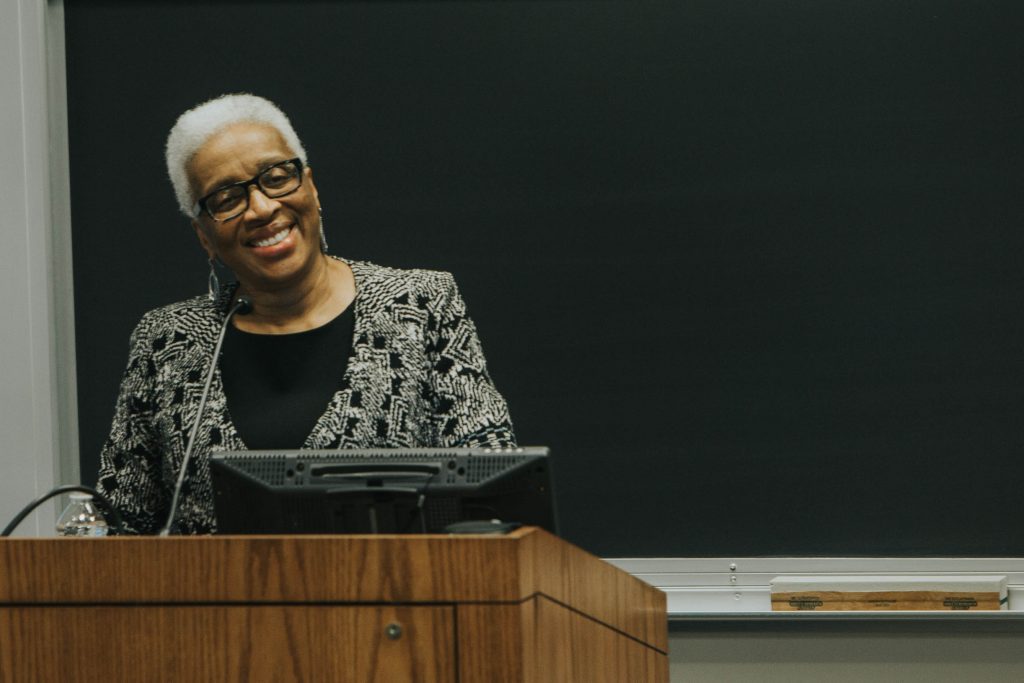Justice Geraldine Hines, in her inaugural lecture January 18 as this semester’s Rappaport Distinguished Visiting Professor, gave a stirring presentation on law, race, and social justice.
The first African-American woman to serve on the Massachusetts Supreme Judicial Court, Hines retired in 2017 after more than sixteen years on the bench. She said that while this is her first time “away from the fray,” she sees an opportunity at BC Law for her to be “a window into how one navigates the pursuit of justice for the poor, the powerless, and the oppressed among us.”
Beginning with her childhood in a Mississippi delta town, Hines sketched a vivid and troubling portrait of how segregation “claimed so many dreams, possibilities, and lives” around her. She reflected on the murders of Emmett Till, Mack Charles Parker, and Medgar Evers, as well as the Bloody Sunday event on the Edmund Pettus Bridge, and spoke about how hard it was to “maintain trust in a legal system that had utterly failed,” and how it made her resolutely committed to doing whatever she could to make intolerance disappear. “By grace,” she said, “I survived with my dreams intact.”
As a student at the University of Wisconsin Law School during the height of the Vietnam War, Hines conceded there were times when she felt “the need to leave and be engaged right now,” believing she “couldn’t wait for a law degree.” She stuck it out at Wisconsin, however, and then faced new challenges as a young civil rights attorney in Boston, where she routinely encountered oppression and microaggressions.
Fighting back with dignity and professionalism was a way to “prove to myself that I was ready for the battles to come,” Hines said. “I understood very clearly that I was carrying a baton to seek justice without compromise, and standing on the shoulders of all who sacrificed to allow me to be there. I learned the value of courage and how to take full advantage of being underestimated.”
Shifting to her time on the bench, Hines spoke about cases where the law conflicted with her lived experience and the need for judges to constantly balance their personal histories with the letter of the law. “With everything I knew about how the law had failed the cause of justice, I did my best to recognize potential for bias and dealt with it accordingly,” Hines said. “I had to honor my oath…but diversity on the bench means nothing if those on the court deny their identities and experiences.”
Hines is the Rappaport Center for Law and Public Policy’s third visiting professor. In addition to appearances at events on campus, she is teaching a course on race and policing.
To read about other Rappaport events, click here.


